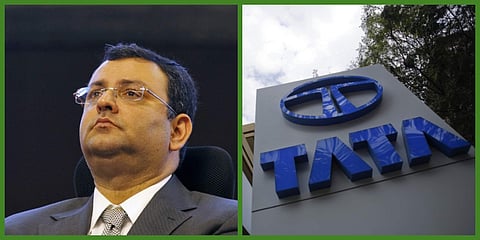

In a big win for Cyrus Mistry, the National Company Law Appellate Tribunal (NCLAT) on Wednesday restored him as executive chairman of Tata Sons and ruled that the appointment of N Chandrasekaran as the head of the holding company of the salt-to-software conglomerate was illegal.
The two-judge bench has also quashed the conversion of Tata Sons from a public company into a private firm. But Mistry's triumphant comeback to Bombay House will have to wait a while since the tribunal has stayed the execution of the order for a period of four weeks to give time to the Tatas to appeal the verdict. The Tatas may also take the issue to the Supreme Court.
Spokespersons of both parties did not react immediately, stating that they are examining the order.
The NCLAT's order came as a big blow to the Tata Group, not because of Mistry's restoration but because the tribunal's finding buttresses his allegations of serious corporate governance lapses, operational mismanagement and oppression of minority shareholders.
A scion of the Shapoorji Pallonji family, which owns 18.4 per cent of Tata Sons, Mistry had been unceremoniously sacked from his position as Chairman of Tata Sons in October 2016. The ouster came four years after Mistry took over as Chairman after Ratan Tata.
The Tata patriarch and Mistry reportedly fell out over the course of the next four years over many disagreements, including on Tata's pet project, Nano - the budget car.
The Tatas also removed Mistry from his place as a director on the Tata Sons board. Mistry first approached the Mumbai bench of the National Company Law Tribunal (NCLT) alleging oppression and mismanagement by Tata Sons and 20 others officials, including Ratan Tata, through two family firms: Cyrus Investments and Sterling Investments.
However, the NCLT had dismissed his plea in March 2017 on the grounds that Mistry was not eligible to pursue the case. According to Section 244 of the Companies Act, 2013, a shareholder of a company may bring an oppression and mismanagement case only if it holds more than one-tenth of the issued share capital.
This too was challenged by Mistry at the appellate tribunal, with better results. The NCLAT waived off the 10 per cent criteria and sent the matter back to the NCLT.
While the lower court proceeded to reject Mistry's renewed plea for reinstatement in July last year, saying that it found no merit in his allegations, Mistry's subsequent appeal to the NCLAT has led to a complete reversal.
While analysts say that there isn't any immediate operational impact on the Group, since the order has been stayed for four weeks to give time for appeals, they do note that there might be an impact on investor confidence considering the nature of the allegations.